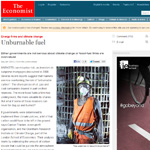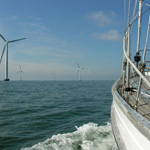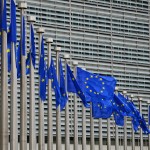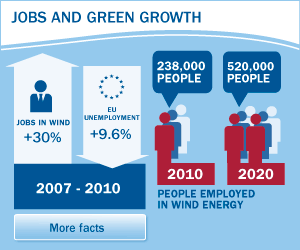 The reason fossil fuel firms are not trying to reduce their carbon emissions could be due to uncertainty on climate and energy policy, suggests the Economist in a recent editorial.
The reason fossil fuel firms are not trying to reduce their carbon emissions could be due to uncertainty on climate and energy policy, suggests the Economist in a recent editorial.
The paper cites cuts in renewable energy support schemes as one of the elements influencing investors. “Companies are betting that government climate policies will fail.”
This is exactly what EWEA has been warning for many months:
“The financial and economic crisis has provoked a wave of uncertainty across the European Union since 2010, with national governments making damaging retroactive changes to policies and regulations for wind energy.”
The Economist added that in mid-April the European Parliament voted against attempts to shore up Europe’s emissions trading system, the world’s largest carbon market, against collapse.
 The 1 May celebrations in Europe last week were tainted by historically high unemployment levels, a miserable macroeconomic outlook and a battered climate and energy policy. The challenges facing Europe’s economy are many. But it is beyond doubt that a thorough modernisation of our energy supply remains an important part of the solution.
The 1 May celebrations in Europe last week were tainted by historically high unemployment levels, a miserable macroeconomic outlook and a battered climate and energy policy. The challenges facing Europe’s economy are many. But it is beyond doubt that a thorough modernisation of our energy supply remains an important part of the solution.
Every single day the EU spends almost a billion Euros in oil imports. This is far from being the best way for Europe to strengthen its competitiveness, public finances, employment and security of supply. At the same time, an outdated and poorly connected electricity grid continues to impose unnecessarily high energy prices on businesses and consumers.
In many Member States the economic crisis has led “cheap energy” to become a mantra for business and policy makers. I couldn’t agree more. Accordingly, it is all the more important that the setting of energy prices is based on fair and transparent accounting methods. Therefore the cost of pollution should, obviously, be included as should the hidden subsidies from which both fossil fuels and nuclear energy benefit so hugely.
We must keep in mind that what is cheap energy today will not necessarily remain cheap tomorrow. In the past, we have time and again underestimated the development of the oil price. Given that the European continent possesses no significant fossil energy reserves, and is already importing more than half its energy, it would be a high-risk game, both from an economic and from a security policy point of view, to base our long-term energy strategy on what is cheap here and now.

Thomas Becker, EWEA CEO.
Commenting on the call from BusinessEurope Director General Markus J Beyrer on EU energy policy, European Wind Energy Association CEO Thomas Becker had this to say;
It sounds a little old fashioned when BusinessEurope claims that fighting climate change is not compatible with cost-competitiveness and security of supply. What have they been doing for the last 15 years? What planet were they on?
The main problem of the energy situation today in Europe is the massive subsidies – still in 2013 – going to fossil fuels and nuclear.
If that was corrected and with a properly functioning electricity market there would be no discussion of what choice policy makers would make for the energy mix.
But even without such a correction, wind energy is already cheaper than nuclear, and in an increasing number of locations already cost competitive with new gas and coal.
 Football fans know the value of a hat-trick – the triumvirate of goals that prove success for any striker. Though difficult to achieve, the hat-trick is worth striving for.
Football fans know the value of a hat-trick – the triumvirate of goals that prove success for any striker. Though difficult to achieve, the hat-trick is worth striving for.
The European Renewable Energy Council (EREC) also wants to score a hat-trick. Their new publication proposes three targets to drive EU energy policy after 2020: renewable energy, greenhouse gas emissions and energy efficiency.
“This would yield more benefits for European citizens and industries than a one-legged policy” based on a greenhouse gas only approach, say EREC.
“The message is simple: if you want to lower costs, create jobs, replace fossil fuel imports and drive innovation, competitiveness and investment, then a hat-trick of climate and energy goals works best”, said Rainer Hinrich-Rahlwes, President of EREC.
 Yesterday the European Parliament voted against a proposal to delay the auctioning of 900 million tonnes of carbon allowances in the EU’s Emissions Trading System (ETS) – a move proposed by the European Commission to rescue the ailing ‘cornerstone’ system of Europe’s climate legislation which puts a price on carbon emissions.
Yesterday the European Parliament voted against a proposal to delay the auctioning of 900 million tonnes of carbon allowances in the EU’s Emissions Trading System (ETS) – a move proposed by the European Commission to rescue the ailing ‘cornerstone’ system of Europe’s climate legislation which puts a price on carbon emissions.
As a result, the European Voice reported that the price of carbon plummeted 45% to a record low of €2.63. The ETS system was designed around a carbon price of approximately €20, but an over-allocation of allowances and the economic crisis has meant the price of carbon has been around €7 per tonne in recent years – not expensive enough to make it a disincentive to invest in carbon polluting industries like fossil fuels.
“MEPs have voted against the polluter pays principle: the carbon price will continue having no impact on investment decisions in the power sector,” Rémi Gruet, Senior Climate Advisor at EWEA, said.
 The reason fossil fuel firms are not trying to reduce their carbon emissions could be due to uncertainty on climate and energy policy, suggests the Economist in a recent editorial.
The reason fossil fuel firms are not trying to reduce their carbon emissions could be due to uncertainty on climate and energy policy, suggests the Economist in a recent editorial.






 Comments
Comments



